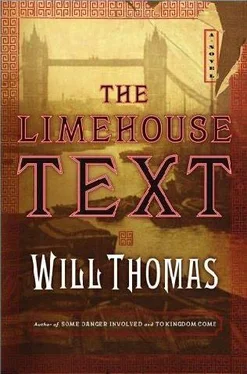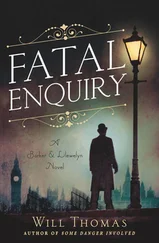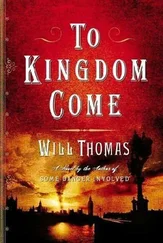Will Thomas - The Limehouse Text
Здесь есть возможность читать онлайн «Will Thomas - The Limehouse Text» весь текст электронной книги совершенно бесплатно (целиком полную версию без сокращений). В некоторых случаях можно слушать аудио, скачать через торрент в формате fb2 и присутствует краткое содержание. Жанр: Исторический детектив, на английском языке. Описание произведения, (предисловие) а так же отзывы посетителей доступны на портале библиотеки ЛибКат.
- Название:The Limehouse Text
- Автор:
- Жанр:
- Год:неизвестен
- ISBN:нет данных
- Рейтинг книги:5 / 5. Голосов: 1
-
Избранное:Добавить в избранное
- Отзывы:
-
Ваша оценка:
- 100
- 1
- 2
- 3
- 4
- 5
The Limehouse Text: краткое содержание, описание и аннотация
Предлагаем к чтению аннотацию, описание, краткое содержание или предисловие (зависит от того, что написал сам автор книги «The Limehouse Text»). Если вы не нашли необходимую информацию о книге — напишите в комментариях, мы постараемся отыскать её.
The Limehouse Text — читать онлайн бесплатно полную книгу (весь текст) целиком
Ниже представлен текст книги, разбитый по страницам. Система сохранения места последней прочитанной страницы, позволяет с удобством читать онлайн бесплатно книгу «The Limehouse Text», без необходимости каждый раз заново искать на чём Вы остановились. Поставьте закладку, и сможете в любой момент перейти на страницу, на которой закончили чтение.
Интервал:
Закладка:
“I hope you do not mind,” the dandy said. “There is nothing as unaesthetic as an enquiry agent, and I have a reputation for taking my frivolity seriously. I had to tell my friends you were bailiffs, like our friend here.”
“As hard as you try,” Barker rumbled, “I doubt you could create a debt your father could not repay. Forbes, this is my assistant, Thomas Llewelyn. Thomas, the Honorable Pollock Forbes. Speaking of paying, Pollock, how do we stand on credit? Do I owe you or do you owe me?”
Forbes ran a finger along his chin as he reflected. He had the longest, thinnest fingers I have ever seen. He was a casual looking fellow, in the latest style from Savile Row, a lounge suit. Despite the name, it looked expensive. “I believe I’m in your debt, old man, and it’s not the kind the pater can pay off. What are you working on?”
“I have a case involving a book stolen from a Chinese monastery. The Chinese government and the Foreign Office are hunting for it. The latter is represented by Mr. Trelawney Campbell-Ffinch.”
“Campbell-Ffinch. I haven’t heard that name in ages,” he said, fluttering a hand at a waiter in the hall. “Lonnie was in my house at Cambridge, a few years ahead of me. He’s always been a bully and a frightful bore. Chumley, bring us a bottle of the Veuve Clicquot, there’s a good chap.”
The waiter, who had appeared silently at my elbow, glided off as quietly as he came. Something about Forbes’s inflection made me pause, and then it came to me. Like Barker, he was a Scot. Detective work was one of those occupations like engineering that seemed suited to the Scottish temperament.
“You’ll like it, I think,” he said, referring to the wine. “The Royal has one of the best cellars in the world. To tell the truth, I didn’t know Lonnie was in London again. He’s like a bad sailor, always being posted farther and farther east. Something big must have occurred to have them dare bring him back. Is any of this in my line?”
“It has international repercussions,” Barker said, “but I do not believe any heads shall roll, save for one fellow’s, who has been killing people to get the book.”
“Where?”
“The East End,” the Guv stated. “Limehouse.”
“Isn’t that where… Oh, yes, I see it now. Your late assistant was mixed up in this, was he not?”
“He was.”
The waiter arrived with the Clicquot and opened it with a ceremonial pop. I had never tasted pink champagne before. It was sweet and tickled my nose.
Barker emptied his glass and set it back on the table. “Very nice,” he pronounced. I knew for a fact that he did not care for wine of any sort and I doubted he could tell a Dom Perignon from a third-rate Italian table wine.
Pollock Forbes coughed discreetly behind his hand. “So what exactly would you like me to undertake?” he asked.
“I would like to know when Campbell-Ffinch arrived in London again and if he was summoned. I want to learn how he has been spending his free time and with whom. His knuckles are swollen. I believe he may have been fighting recently.”
Forbes extracted a short pencil from his pocket and recorded the questions on his cuff. “Got it. Anything else?”
“Have you ever heard of a Mr. K’ing?”
“The Chinaman? Of course. I hear his name often. ‘Lost ten quid to Mr. K’ing at puck-a-poo,’ ‘Lost fifty poun’ at mah-jongg to that blighter K’ing.’ I gather between the gambling parlors and the opium dens, he’s doing all right for himself.”
The snoring fellow in the corner had awakened and even now, they were setting his meal before him: game hens with pomme frites. I had heard the cooking here was as good as any restaurant in Paris. All the French political exiles ate here and why shouldn’t they? Even if the food were not superb, there was the authentic decor, as if a slice of Versailles like a three-layered cake had been set down in the middle of London.
“Stay for dinner?” Forbes asked, as if reading my thoughts. Barker pondered it as his fellow Scotsman refilled his glass. The Guv tossed it down again like so much well water and shook his head.
“No, we must be going.” He turned to me. “What’s wrong, lad?”
“Nothing, sir,” I grumbled.
Barker took my remark at face value, but I must have caught Forbes in mid-breath, setting him coughing behind his hand. It was then that my instinct or training took over: the coughing, the sunken skin around his eyes, both signs of illness.
We took our leave, after Forbes promised he would look into the matter. I wondered if he was a plainclothes policeman working sub rosa, as I understood the Royal was a haven for refugees and anarchists. But, no, he was too genuine, too imaginative, too aesthetic, to use his word. We passed out into Regent Street again and stood at the cabstand.
“He is consumptive, isn’t he?” I asked.
Barker nodded slowly. “Yes. Very good, Thomas, but then, you are familiar with the symptoms, are you not?” He referred, of course, to my late wife, Jenny, who had wasted away of the disease while I was in prison. A shudder went down my back. The memory had been dredged up too quickly, before I’d had a chance to prepare myself.
“How advanced is his condition?”
“He’s had it at least three years. His father is the laird of Aberdeenshire and chief of the Clan Forbes. Pollock is the oldest son and due to inherit, but he shall not survive his father. He’ll not be getting his threescore and ten, I ken.”
“Is he some sort of…enquiry agent?”
“Not as you or I know it,” he said. “Forbes once said we would split the city between us. He would take the West End, I the East. To be more precise, he looks after the aristocracy. When they get into a spot of trouble-blackmail, perhaps, or a scandal-they come to him. He takes care of them better than they deserve. He is a walking Burke’s Peer-age. He can tell you line by line the honors and lineage of England’s most powerful families. It occupies him, I think. He cultivates a flippant exterior, but behind it lies one of the best brains in London. His father does not understand, poor fellow-keeps trying to order him back-but he will not go, not until the very end. I imagine that seeing what he shall miss must be far too painful.”
“It is abominable, sir.”
“Yes, well, we can merely play the hand we are given, lad. Cursing the Dealer is a waste of breath.”
“So, how do you work together, if one of you moves among the upper class and the other among the lower?”
“Cases are not so simple, lad. They overlap and when they do, we help each other. Do you recall the case I had you dictate on the day you were hired? The one involving William Koehler?”
I thought back to that day almost a year before. “It was a blackmailing case, was it not?”
“Aye. Koehler was a petty blackmailer living beyond his means in the Albany, where Forbes has chambers. He dealt in letters of a revealing nature and was quite successful. In lieu of payments, sometimes he would demand letters of introduction or invitations to balls and soirees, which in turn led to opportunities to find more letters. Forbes kept an eye on him until his rise was getting too high. He was a good-looking scoundrel and had begun to woo a certain aristocrat’s daughter. Forbes decided to act, particularly when Koehler began to threaten an MP. We thought it best that the letter warning him off came from me, and I supplied the services of James Briggs, a retired prizefighter, to act as protection. Briggs is awfully good at frightening people away.”
I thought Barker not so bad at it himself. Were I a criminal, I would not like to receive one of those icily polite letters informing me that I had come under the private enquiry agent’s scrutiny.
Читать дальшеИнтервал:
Закладка:
Похожие книги на «The Limehouse Text»
Представляем Вашему вниманию похожие книги на «The Limehouse Text» списком для выбора. Мы отобрали схожую по названию и смыслу литературу в надежде предоставить читателям больше вариантов отыскать новые, интересные, ещё непрочитанные произведения.
Обсуждение, отзывы о книге «The Limehouse Text» и просто собственные мнения читателей. Оставьте ваши комментарии, напишите, что Вы думаете о произведении, его смысле или главных героях. Укажите что конкретно понравилось, а что нет, и почему Вы так считаете.












